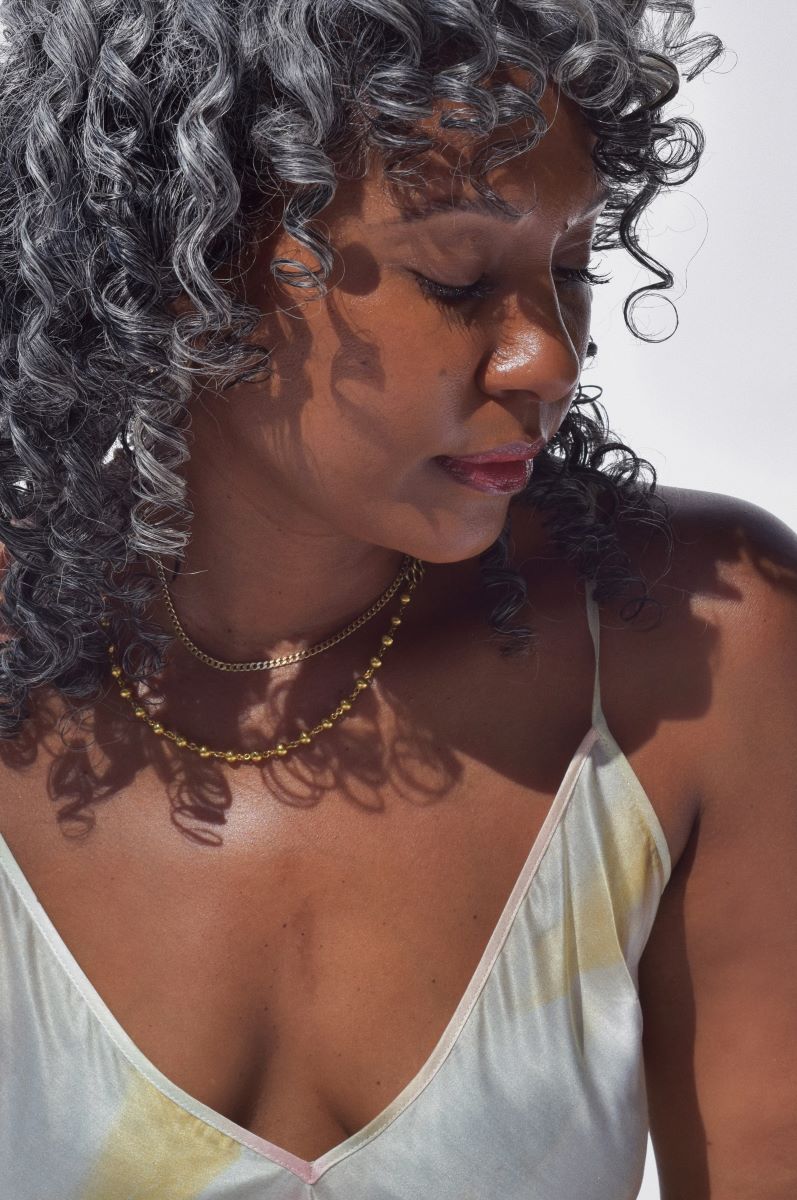Tell me if you can relate: “Oh wow, I have a pimple on my cheek. Cool, let me put some spot treatment on it. Couple days later – yayy that bugger is gone!! THEN in its place is a not so cute dark spot where the pimple once was, lingering for days, weeks, months who knows. Like come on!!!! Dark spots and blemishes caused from acne is a form of hyperpigmentation. One thing to note is hyperpigmentation can also occur on the body. As someone who suffered from back-ne through their 20’s skin inflammation can strike all parts of the body. So lovies, while I am not a doctor or skin professional of any sort, I am happy to share with you the crumbs knowledge I have picked up from the pros ;))
 HYPERPIGMENTATION FAQ’S
HYPERPIGMENTATION FAQ’S
If you’re anything like me, comprehension brings comfort. Like if I can understand the cause then my brain can turn to a solution which I find very soothing.
What is hyperpigmentation?
Patches of skin that are darker than the surrounding skin. This happens when cells in the skin make too pigment aka melanin.
Hyper: more + Pigment: color in your skin = More Color
People with brown skin are more susceptible to hyperpigmentation for the simple fact that they have more melanocytes (cells that produce melanin).
3 Basic Types of Hyperpigmentation:
- Sun spots or also known as Age Spots,
- Post-inflammatory – most common one is acne,
- Melasma – generally hormone induced
Hyperpigmentation may appear as:
- Freckles
- Age Spots
- Large dark patches of darken skin
What causes Hyperpigmentation?
- When melanocytes produce too much melanin
- Some medications can cause hyperpigmentation
- Increased levels of specific hormones especially during pregnancy
- Prolonged sun exposure
 Post-Inflammatory Hyperpigmentation (PIH) vs. Hyperpigmentation
Post-Inflammatory Hyperpigmentation (PIH) vs. Hyperpigmentation
PIH is what I mentioned earlier, like when I get a dark spot after a pimple. PIH is usually temporary and with time & proper skincare can go away. On the other hand, hyperpigmentation appears as larger spots or patches. As mentioned above, hyperpigmentation is typically caused by sun exposure, hormones, or even medication. This form is a lot trickier to treat.
HYPERPIGMENTATION PREVENTION & TREATMENT
Prevention is the key!!! Lovies the best way to treat hyperpigmentation is to prevent it all together. Don’t wait until you have the issue. It is critical that you have the proper ingredients on board daily that will help support your skin. No matter your skin tone, sunscreen is gonna be your best defense against hyperpigmentation. UV is the number one trigger not to mention that wearing sunscreen is essential for your overall skin health. Even if you don’t see any signs of sun damage now, it can still present itself as you age. For example, my BFF never struggled with hyperpigmentation until she turned 43. Then BAM! Over the course of a year she developed melasma and has been struggling to find a long lasting treatment option. My point in mentioning this is to say, always use sunscreen even if you don’t tend to get sun burned.
SPF PRODUCTS
Treatment for Post Inflammatory Hyperpigmentation
I have oily skin AND your girl is 43 so my skincare routine is gonna look very different from someone who is 27 with drier or combination skin. For me buildup can lead to clogged pores then pimples and then dreaded PIH dark spots. I ain’t foolin’ around babes, I am a firm believer in layering on ingredients to help support my skin. For example, in the AM I love incorporating products that have vitamin c and niacinamide. While in the PM I want to support my skin healing & repairing as the body does as I sleep so that’s when I use BHA, AHA, and a couple times a week a classic retinol.
I use products with the following ingredients to help fade PIH and are safe to use daily:
- Salicylic Acid – BHA: Use in the PM – Great to breakdown buildup while exfoliating the skin.
- Lactic Acid – AHA: Use in the PM – Helps smooth skin texture while exfoliating the skin.
- Niacinamide : Use in the AM & PM – Helps improve discoloration while also reducing oil.
- Vitamin C: Use in the AM – Antioxidant to help brighten dark spots
Retinoids are a special category of treatment that should be used at night a few times a week, followed by SPF in the AM. Retinoids are the gold standard for speeding up skin cell regeneration. Helps improve fine lines, wrinkles, and skin texture.
POST-INFLAMMATORY HYPERPIGMENTATION PRODUCTS
Treatment for Hyperpigmentation
The following ingredients can help treat hyperpigmentation:
- Hydroquinone: Super powerful skin bleaching ingredient that can prescribed by a doctor. Used to help lighten dark spots.
- Azelaic Acid: Used to help restore skin.
- Kojic Acid: A by-product in the fermentation process of malting rice in making Japanese sake. A natural brightening ingredient derived from mushrooms that goes deep in the skin to prevent melanin production.
- Vitamin C can impede the production of melanin and helps brighten skin.
- Retinoids: Speeds up skin cell regeneration and impedes pigment production.
- TCA: a chemical peel ingredient that encourages skin regeneration. Most of my research suggests consulting a dermatologist for in-office peels. However, I did find an at-home Dark Spot Peel x Ourself with TCA.
- SPF
Do you struggle with hyperpigmentation? What are your favorite products for treating hyperpigmentation? Comment below.

leave a comment